第16章 PLOUGHING THE SEA(3)
Disheartening to Bolivar as this spectacle was, it proved merely the first of a series of calamities which were to overshadow the later years of the Liberator. His grandiose political structure began to crumble, for it was built on the shifting sands of a fickle popularity. The more he urged a general acceptance of the principles of his autocratic constitution, the surer were his followers that he coveted royal honors. In December he imposed his instrument upon Peru. Then he learned that a meeting in Venezuela, presided over by Paez, had declared itself in favor of separation from Colombia. Hardly had he left Peru to check this movement when an uprising at Lima deposed his representative and led to the summons of a Congress which, in June, 1827, restored the former constitution and chose a new President. In Quito, also, the government of the unstable dictator was overthrown.
Alarmed by symptoms of disaffection which also appeared in the western part of the republic, Bolivar hurried to Bogota. There in the hope of removing the growing antagonism, he offered his "irrevocable" resignation, as he had done on more than one occasion before. Though the malcontents declined to accept his withdrawal from office, they insisted upon his calling a constitutional convention. Meeting at Ocana, in April, 1828, that body proceeded to abolish the life tenure of the presidency, to limit the powers of the executive, and to increase those of the legislature. Bolivar managed to quell the opposition in dictatorial fashion; but his prestige had by this time fallen so low that an attempt was made to assassinate him. The severity with which he punished the conspirators served only to diminish still more the popular confidence which he had once enjoyed. Even in Bolivia his star of destiny had set. An outbreak of Colombian troops at the capital forced the faithful Sucre to resign and leave the country. The constitution was then modified to meet the demand for a less autocratic government, and a new chief magistrate was installed.
Desperately the Liberator strove to ward off the impending collapse. Tkough he recovered possession of the division of Quito, a year of warfare failed to win back Peru, and he was compelled to renounce all pretense of governing it. Feeble in body and distracted in mind, he condemned bitterly the machinations of his enemies. "There is no good faith in Colombia," he exclaimed, "neither among men nor among nations.
Treaties are paper; constitutions, books; elections, combats;liberty, anarchy, and life itself a torment."But the hardest blow was yet to fall. Late in December, 1829, an assembly at Caracas declared Venezuela a separate state. The great republic was rent in twain, and even what was left soon split apart. In May, 1830, came the final crash. The Congress at Bogota drafted a constitution, providing for a separate republic to bear the old Spanish name of "New Granada," accepted definitely the resignation of Bolivar, and granted him a pension.
Venezuela, his native land, set up a congress of its own and demanded that he be exiled. The division of Quito declared itself independent, under the name of the "Republic of the Equator"(Ecuador). Everywhere the artificial handiwork of the Liberator lay in ruins. "America is ungovernable. Those who have served in the revolution have ploughed the sea, " was his despairing cry.
Stricken to death, the fallen hero retired to an estate near Santa Marta. Here, like his famous rival, San Martin, in France, he found hospitality at the hands of a Spaniard. On December 17, 1830, the Liberator gave up his troubled soul.
While Bolivar's great republic was falling apart, the United Provinces of La Plata had lost practically all semblance of cohesion. So broad were their notions of liberty that the several provinces maintained a substantial independence of one another, while within each province the caudillos, or partisan chieftains, fought among themselves.
Buenos Aires alone managed to preserve a measure of stability.
This comparative peace was due to the financial and commercial measures devised by Bernardino Rivadavia, one of the most capable statesmen of the time, and to the energetic manner in which disorder was suppressed by Juan Manuel de Rosas, commander of the gaucho, or cowboy, militia. Thanks also to the former leader, the provinces were induced in 1826 to join in framing a constitution of a unitary character, which vested in the administration at Buenos Aires the power of appointing the local governors and of controlling foreign affairs. The name of the country was at the same time changed to that of the "Argentine Confederation"(c)-a Latin rendering of "La Plata."No sooner had Rivadavia assumed the presidency under the new order of things than dissension at home and warfare abroad threatened to destroy all that he had accomplished. Ignoring the terms of the constitution, the provinces had already begun to reject the supremacy of Buenos Aires, when the outbreak of a struggle with Brazil forced the contending parties for a while to unite in the face of the common enemy. As before, the object of international dispute was the region of the Banda Oriental. The rule of Brazil had not been oppressive, but the people of its Cisplatine Province, attached by language and sympathy to their western neighbors, longed nevertheless to be free of foreign control. In April, 1825, a band of thirty-three refugees arrived from Buenos Aires and started a revolution which spread throughout the country. Organizing a provisional government, the insurgents proclaimed independence of Brazil and incorporation with the United Provinces of La Plata. As soon as the authorities at Buenos Aires had approved this action, war was inevitable.